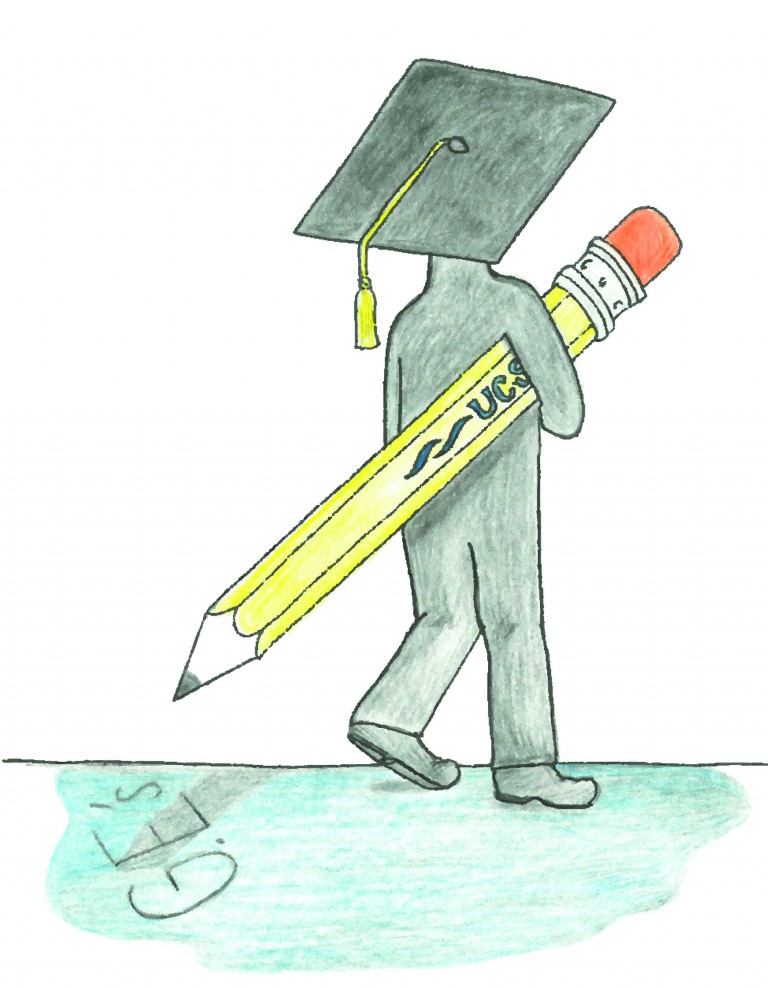
Gwendolyn Wu
Campus Beat Reporter
Almost everyone who arrives on this campus is required to take general education classes, the number of which varies depending on the amount of units you come in with. A few come in with none while some people brag about their junior standing and coveted pass times when you first meet them.
Students are growing increasingly restless about the status of higher education. They’re calling for a more practical education, better professors who are committed to teaching and increased cultural sensitivity. One of the tenets of those demands is the elimination of unnecessary and irrelevant GE classes — but it’s not so simply done.
A basic argument is the value of a liberal arts education for STEM majors, and vice versa. Should your future doctor be required to take two art classes, three culture and thought classes and so on? What’s the point of a humanities student taking STEM requirements if they go into art?
It stands to reason that these requirements are incredibly useful in preparing us for our day-to-day lives. It often reappears in our careers — for instance, the Medical College Admission Test (MCAT) now tests on sociology because it finds that doctors need to be socially aware. Yet, this does not mean that every GE should be staying onboard.
What’s excessive is the number of non-major classes that students have to take. In the College of Letters and Science, one must fulfill 72 units from Areas A-G if they have not taken any GEs. This does not include the niche requirements, such as six writing-based courses on ethnicity, which could very well add more even if some overlap.
A typical major has preparatory courses (as few as 20 and as many as 68), in addition to upper division requirements, which require upwards of 36 units. Some students tack on a minor or double major, which adds on more unit requirements. It’s shocking to see some students take more GEs than major classes when they want to focus solely on their careers, crunching numbers to cover what they can. If you were an aquatic biology major, for example, you’d be taking 116 units to go with your 60 GEs (excepting 12 from the science, math and technology requirement) — a tight squeeze if you wanted to take additional coursework.
Cramming all of this into your four years (some take a fifth, but it’s generally discouraged) here gets difficult. You’re required to take 180 (184, if you’re one of those lucky people who also have to fulfill the foreign language requirement) units in order to graduate, and that includes the number of units you come in with. It also imposes a 200-unit maximum on what you can take at UCSB, which excludes transferable credits. Numerically, it’s hard to get it all in — but what’s also at stake is the kind of learning we do.
So many of these courses are worthwhile experiences because they add to our understanding of the world. However, it’s the quantity that students must take that pushes them toward time-wasters that teach few new skills or concepts that add value to their lives. It opens up a whole new discussion about if the things we’re required to take are still culturally relevant.
Take the European Traditions requirement for instance. Learning from the past is important in determining how we want to run our futures, but it is confusing and hardly pertinent considering that we live in the United States. Why is it separate from the World Cultures, which requires that we learn from other parts of the globe? On UCSB’s campus, people have pushed for new GEs. Gender and sexuality is just as important to learn as ethnicity is, but there comes the issue of having to add yet another requirement to the books.
What is best in this situation is to get rid of some GEs (this way, students aren’t stuck trying to fill their year with Dinosaurs, Antarctica and Geological Catastrophes) and replace some of the more outdated ones with applicable cultural studies seen every day. Students should be encouraged to take classes that will help them later on in life, but they shouldn’t be forced to fill a large number of extraneous requirements.










